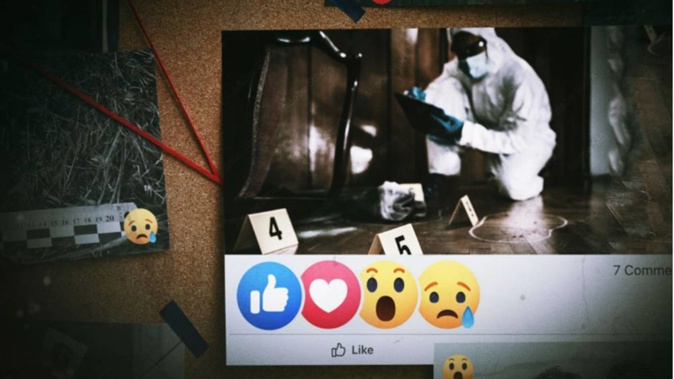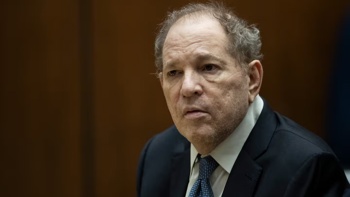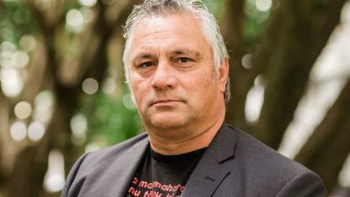
WARNING: Story contains references to suicide, sudden death and assault, and graphic details about human remains.
A crime scene cleaning company that posted graphic scenes of sudden deaths and suspected suicides to its social media accounts was “morally repugnant”, minimised the impact of its actions and broke the law. But still, it escaped prosecution. Why? Sam Olley, of RNZ, investigates.
For years, Crime Scene Cleaners did the grim work of tidying up the scene of unexpected - often traumatic - deaths.
It had private clients - insurance companies, families, landlords - and a number of public agencies engaged it, too. District health boards, the Ministry of Social Development and police were among them. KiwiRail spent nearly $1 million with the company in the past year alone.
But alongside this work, pictures from the jobs staff attended were posted on the company’s social media accounts.
RNZ revealed earlier this year that Crime Scene Cleaners had been posting images across Instagram and Facebook for nearly three years. On Facebook alone, RNZ counted photos from the aftermath of 15 unattended deaths, two suspected suicides, five attempted suicides or instances of self-harm, five assaults and three other assaults explicitly listed as domestic violence, as well as two photos showing human remains being cleaned off trains.
In one photo posted on the Crime Scene Cleaners’ Facebook and Instagram accounts in 2020, a smiling staff member held a piece of human bone out to the camera, after being called out to clean a train that had hit and killed the person. The caption said the staff member was “very happy with his find”.
Another photo of decomposing remains, posted last June, showed larvae eating leftover body fluids, with a caption describing “more delicious hungry maggots,” and a subsequent comment, “human remains for these fat wee beasts”.
After the company’s actions were reported on by RNZ, the Office of the Chief Coroner took just three days to refer them to police, requesting an investigation. The Deputy Privacy Commissioner also started a probe.
The commissioner’s office finished its compliance investigation this week - after speaking with Crime Scene Cleaners throughout the year - and the police have closed their file.
‘Morally repugnant’
The police investigation is outlined in a report obtained by RNZ. It was focused on potential breaches of the Coroners Act - namely, making public the method or any suspected method of a self-inflicted death, and describing a death as suicide.
The report showed no investigation into a possible breach of the Crimes Act, which prevents people from improperly or indecently interfering with any dead human body or human remains, or treating them with indignity.
There was also no attempt to contact relatives of people whose scenes of death were posted online. The officer in charge felt this “may have the potential of further traumatising anyone associated”.
The investigating officer did however interview the company’s co-owner, Carl Loader.
“He was cooperative with the investigation, has accepted responsibility for the images appearing on his company’s Facebook site and has deleted the site,” the officer wrote.
The report says Loader is a “colourful character” who was “ambushed on live radio” about the case. (It’s unclear why the report says this - RNZ told police its interview with Loader was pre-recorded, days before the story went out, and part of it was replayed on air.)
Loader admitted staff had uploaded images and he was “somewhat ignorant of law and restrictions”. There had been “a lot of vitriol directed at Loader online as a result of the publications”, the officer noted.
“[He] makes no excuses but does in part minimise the potential effect. He claims, and I believe him, that he simply wasn’t aware of the legislation.”
The investigation found the images were “in some cases disturbing, and disgusting, and in some cases (the train fatality for example) morally repugnant”.
The company though had probably been correct to call scenes suicides, based on information it had from police and family in the immediate days after, even though coronial rulings were still pending.
And although the images would upset members of the public, “the majority are from the normal course of business undertaken by Crime Scene Cleaners Ltd”, the report said.
Before the investigation was started, police said there was not evidence to support any charges. But the investigation report finds the company did break the law.
The company “technically” breached the Coroners Act, but the posts were not “significant enough” to warrant prosecution and “did not pass the public interest test of the Crown Law prosecution guidelines”.
“Loader has cooperated fully and I don’t think there is ever a likelihood of a repeat,” the officer wrote.
“Crime Scene Cleaners have revised all practices, personal contracts and scene security practices.”
Police ‘groomed by the offender’
A former client of the company, who had a personal connection to some photos posted online, felt the company had “gotten away with it”.
“I don’t think that they [police] did enough to involve the victims in the process,” they said.
“It [the repeated posting of the images] was more than just a silly little mistake. And it was very much more than a silly little mistake for the victims.”
To them, the absence of any interviews with victims made the investigation “weighted toward Crime Scene Cleaners”.
“[Crime Scene Cleaners] have had a slap on the wrist and they’ve gotten away with it.”
Independent victims’ advocate Ruth Money describes the police probe as “flawed”.
/cloudfront-ap-southeast-2.images.arcpublishing.com/nzme/O3PEB2DCSJANVJKM3YWGH2PINA.PNG)
“Police may have determined this person’s innocence based on remorse,” she said.
“The tone of the police report, it seems very one-sided. It seems that perhaps the officer has been groomed by the offender in this case. And it also reads to me like there had been a predetermination that there will be a warning issued, so the investigation perhaps isn’t as thorough as it could or should have been given the criminality or potential criminality of the actions.”
Money was also unimpressed by police opting not to inform or interview victims.
“When you don’t speak to the victims, and when you don’t do a thorough investigation, then all you’ve got is manipulation by an offender, or by a person who’s caused harm. And it seems to me that that may well have been what’s happened in this case.
“[Police] certainly haven’t done what they need to do by the victims of this company.”
Co-owner’s prior offending
Carl Loader is no stranger to police and the justice system. According to court records, Loader was “party to the unauthorised entry into a building with intent to commit a crime” in 2006.
That case, heard the following year, stemmed from a dispute over the standard of mechanical repairs to a 1979 Porsche 911.
The car was taken from a service centre in Christchurch during an evening in May 2006, and Loader was reunited with his vehicle “shortly after this”.
Judge Saunders said Loader had “not been truthful” and was “instrumental in the procuring of the unauthorised entry into the premises in Wordsworth Street for the purposes of taking the Porsche without consent or authority”.
Media at the time called the event a “Porsche-napping” and said Loader was ordered to pay $9508 to the service centre for the repairs to the Porsche, and another $500 for the cost of the prosecution, but was discharged without conviction.
Crime Scene Cleaners was set up in 2010, four years after the offending.
The Companies Office told RNZ Loader was cautioned earlier this year for providing inconsistent information for the Companies Register.
Loader is currently listed as a director of three companies and a shareholder of five.
The case for charges
While police opted against charges for breaches of the Coroners Act, the strongest evidence for prosecution may have been under the Crimes Act.
Photos of staff holding out pieces of human bone to the camera smiling were potentially the most incriminating, University of Auckland law professor Mark Henaghan said.
“There’s an argument that that’s treating a body with indignity - holding a human bone and smiling. It’s not treating it with the dignity it deserves.”
In a written statement, a spokesman for police said they were obliged to meet the Crown Law prosecution guidelines when deciding on charges.
“Police has examined a range of evidence and information, and has considered this matter in full context, including that the fact no victims or crime scenes were identified, and there had been no complaints from members of the public.”
Police contracted Crime Scene Cleaners for work in 2019, 2020 and 2021, mostly in Christchurch. The work included multiple cleans at the station the officer investigating the company has worked out of.
/cloudfront-ap-southeast-2.images.arcpublishing.com/nzme/J64Y7YIJPVDH5I5H5B6NZSUR2A.jpg) Police used Crime Scene Cleaners for work in 2019, 2020 and 2021, mostly in Christchurch. (Photo / File)
Police used Crime Scene Cleaners for work in 2019, 2020 and 2021, mostly in Christchurch. (Photo / File)
“Neither the investigating detective senior sergeant nor the reviewing officer have any connection to the business owner,” the police spokesman said.
“Crime Scene Cleaners was one of several contractors, in this and other fields, previously employed by police.”
Government contracts
Most of the company’s publicly funded clients appear to have stopped using them since RNZ’s reporting.
KiwiRail - itself a victim of the company’s social media posts - continues to use them, however.
A former client of Crime Scene Cleaners urged KiwiRail to permanently stop contracting the company - saying Crime Scene Cleaners does not deserve a second chance.
“Surely there are other businesses out there who can do the job just as well without posing in front of train tracks with body parts,” the past client said.
‘Won’t happen again’
The Deputy Privacy Commissioner has spent 10 months examining the company’s compliance with privacy laws.
Deputy Commissioner Liz MacPherson said the company was cooperative with investigators so there was no need to issue a “compliance notice” declaring if, and how, privacy laws had been breached.
Instead, their investigation focused on whether the company was willing to make changes.
“They’ve actually met all our expectations, we’re very satisfied that they now have very high standards,” MacPherson said.
“A good outcome here is that those sorts of photographs, things that you and I saw on social media, don’t happen again.”
The company has appointed a privacy officer, and now requires a signed privacy policy in contracts, MacPherson said.
Crime Scene Cleaners has also designed an app to store “before and after” photos it takes for quality control.
“Rather than having photographs of crime scenes stored on the cameras of staff phones, they use an app that allows photos to be taken, stored safely and removed once no longer needed. Only authenticated staff can use the app.”
Clients of the company could now expect it to always have privacy at the forefront, she said.
In a statement, Crime Scene Cleaners said it was deeply upset about the reaction to its social media pages and it had “sincerely apologised to anyone offended by them”.
“We have worked with the Office of the Privacy Commissioner to implement new systems and processes that they have approved,” the statement read.
Monitoring and auditing processes have also been introduced to ensure the new policies and procedures are effectively implemented and followed.
“CSC now has a thorough understanding of its privacy obligations and is committed to honouring them in every respect.” - RNZ
Looking for support? It’s available
- Call or text 1737 any time for support from a trained counsellor.
- Call PlunketLine 24/7 on 0800 933 922.
- Depression helpline: Freephone 0800 111 757.
- Healthline: 0800 611 116 (available 24 hours, 7 days a week and free to callers throughout New Zealand, including from a mobile phone).
- Lifeline: 0800 543 35.
- Samaritans: 0800 726 666.
Take your Radio, Podcasts and Music with you









